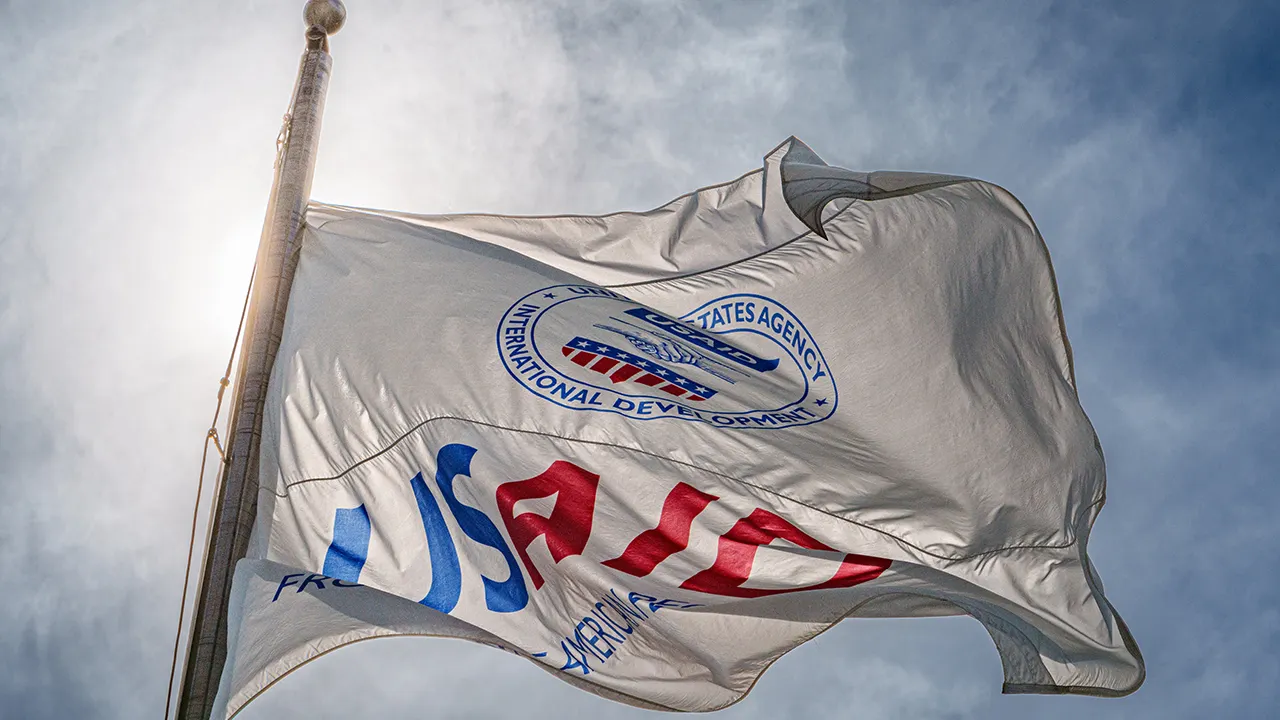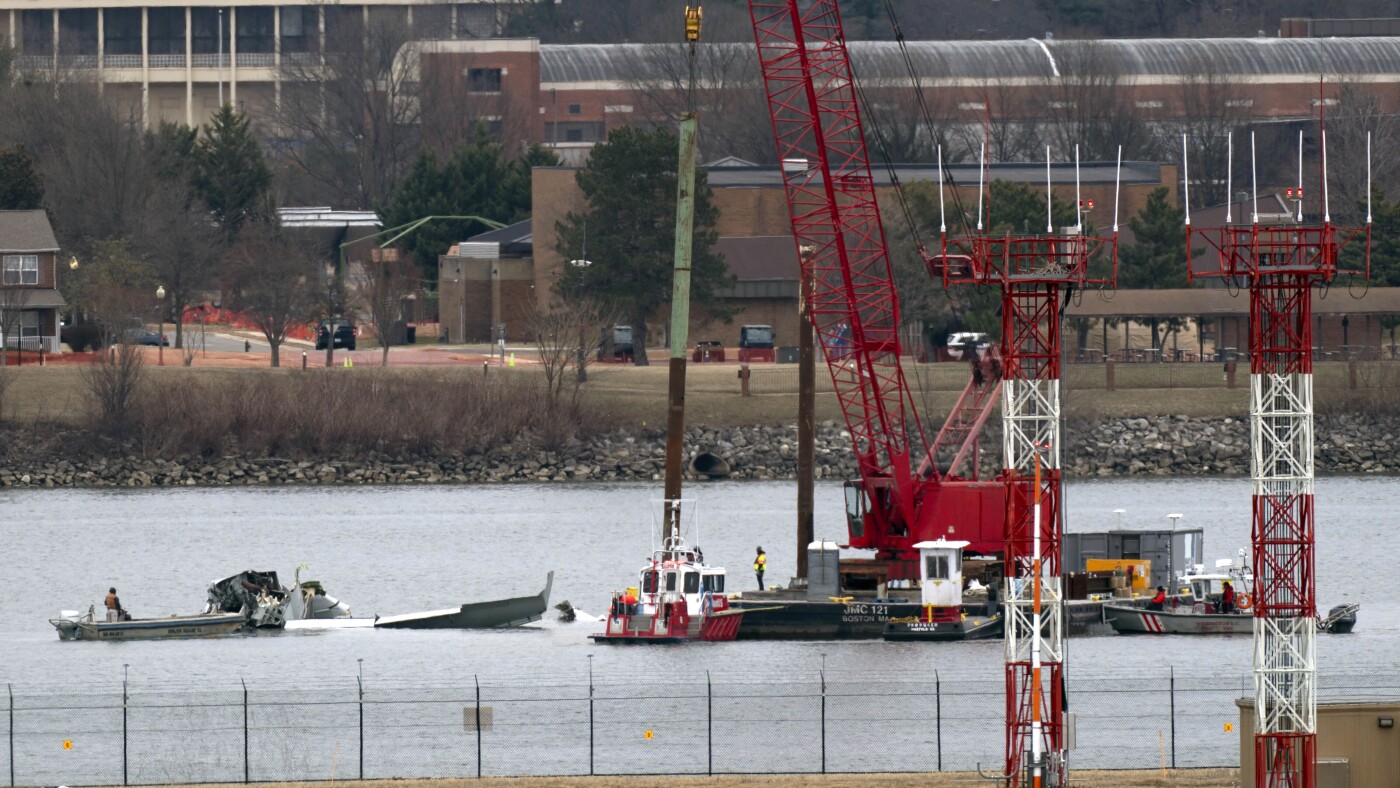Idaho
Idaho State Police to increase enforcement through July 30th
/cloudfront-us-east-1.images.arcpublishing.com/gray/3CDRISPTGVHJXMI33GHRANFEQU.bmp)
TWIN FALLS, Idaho (KMVT/KSVT) — The Idaho State Police (ISP) are ramping up enforcement on all Idaho roads through the end of July.
In just the last 10 days, 15 people have been killed in car accidents on Idaho roads. The Idaho Transportation Department (ITD) attributes this increase in car accidents to aggressive driving.
The ISP will be looking for aggressive drivers who speed, tailgate or commit other violations over the next few weeks.
Aggressive driving caused 39 percent of all fatal crashes last year and just making the decision to slow down can make a big difference.
“I think everyone has the same desire when they get into their car and that’s to make it to their destination safely,” said Ellen Mattila, the Public Information Officer for ITD.
“I just want to encourage everyone that you’re trying to get home safe and so are all the other drivers around you so just be on the lookout and look out for each other.”
In addition to the State Police’s increased presence on the roads they are working in conjunction with 50 county and local police departments to continue tackling this problem through the rest of the “100 Deadliest Days.”
Copyright 2023 KMVT. All rights reserved.

Idaho
GALLERY | Hundreds gather for immigration protest in Idaho Falls – East Idaho News

A young Hispanic woman shares her message, “Fight ignorance!! Not immigrants!!” Video: Throngs of protestors overflow from both sides of a bridge in downtown Idaho Falls near the Japanese Friendship Garden and frozen waterfalls.| David Pace, EastIdahoNews.com
IDAHO FALLS — More than 350 protesters packed onto the Broadway bridge on Saturday in an array of support for local immigrants whose family members could be targeted by U.S. Immigration and Customs Enforcement raids. While many were Latino, others were expressing solidarity were from other races and backgrounds — and all had a unifying message.
Here is our photo gallery of the event. You can read a story about it here.


































=htmlentities(get_the_title())?>%0D%0A%0D%0A=get_permalink()?>%0D%0A%0D%0A=htmlentities(‘For more stories like this one, be sure to visit https://www.eastidahonews.com/ for all of the latest news, community events and more.’)?>&subject=Check%20out%20this%20story%20from%20EastIdahoNews” class=”fa-stack jDialog”>
Idaho
Hundreds gather on Broadway Bridge in Idaho Falls to protest possible immigration raids – East Idaho News

Photo: Three Hispanic young women share messages about Immigration and Customs Enforcement (ICE) school raids and being raised by immigrant parents. The sign on the right says, “For my parents who came with nothing and gave me everything.” Video: Protestors thronged Broadway to voice opposition to federal U.S. immigration policy and tactics.| David Pace, EastIdahoNews.com
IDAHO FALLS — Several hundred people overflowed both sides of the Broadway Bridge in Idaho Falls on Saturday. The rally was to support families who may be targeted or broken up by U.S. Immigration and Customs Enforcement (ICE) immigration raids as the federal government takes new measures to enforce immigration policy.
One young mother with a baby boy spoke on condition of anonymity because her father is an undocumented immigrant.
“Immigrants are the root of America. My dad, he’s been here since I was born — a farmworker,” she said. “We live in fear. My dad, you know our family right now; it’s a tough time for our community. It’s a tough time for our people.”
The woman said after 25 years living in the United States, her father couldn’t attend the protest in person because he fears being deported.
“He picks our potatoes that we eat. You know, they want to send him back to Mexico. They want to to send him back. And that’s my dad,” she said, breaking down in tears. “I’m here today for him because he couldn’t be here. I had my sign. He put his handprint on my sign.”
An EastIdahoNews.com reporter counted more than 350 supporters at the peaceful protest, located adjacent to the frozen waterfalls and Japanese Friendship Garden along the scenic Snake River in downtown Idaho Falls. No counter-protesters were noted at the site.
Signs such as: “School is for education, not deportation,” “They’re our neighbors,” and “Fight ignorance, not immigrants!” waved in the air, accompanied by cheers of “No fears! No hate! No ICE in our state!” and “Sí se puede!”
Other posters read: “We’re all immigrants,” “No human is illegal on stolen land,” “The Pilgrims were undocumented! #KnowYourHistory,” “We speak for those who can’t,” “Immigration reform,” and “Families belong together.”
Event organizer Shantelle Duran said Hispanics and other immigrants are “business owners, workers, students, friends and neighbors.”
“We are here today to stand against racial profiling and unjust immigration policies that target our communities,” she said. “… We contribute to this country just like everyone else. The American flag represents us, too, and we will not be intimidated into silence. Our message is clear — we are here, we are staying, and we will continue to fight for our rights.”

Idaho Falls City Councilman Jim Francis attended the event to better understand this part of our community.
“I’m a strong supporter of community policing in all of its full meaning — that anybody in this community should be secure from crime against persons and property,” Francis said. “So it’s not the primary responsibility of our police department to look at immigration status. It’s to protect all the people who live here.”
The Idaho Falls Police Department’s full policy on immigration violations is outlined in policy 414 (pages 216-218), which states that for immigration violations, “an officer is encouraged to forgo detentions made solely on the basis of a misdemeanor offense when time limitations, availability of personnel, issues of officer safety, communication capabilities or the potential to obstruct a separate investigation outweigh the need for detention.”
Local Idaho Falls officers inform a supervisor if anyone is “detained for a criminal immigration violation.”
In response to “federal immigration officials requests for assistance … the department may provide available support services such as traffic control or peacekeeping efforts.”
Immigration and Customs Enforcement does operate throughout Idaho, but “I’m honestly not aware of anything locally that’s a massive raid,” Francis said.
Law enforcement in Bannock and Blaine counties recently released statements refuting rumors about ICE raids in their communities. Social media in eastern Idaho has been rife with raid rumors for the past several weeks, but there has been scant evidence of any large-scale operations in the area.
RELATED | Local sheriff issues statement about ICE conducting deportation ‘raids’
RELATED | Police debunk viral Facebook post claiming ICE detained and abused local man
The city’s police policy is designed to increase trust with the general public and minority groups.
“Because as soon as you create fear among community groups about law enforcement, then they won’t come forward and help you solve crimes, and that’s our job,” Francis said. “I don’t care if you’re a tourist here or somebody who’s lived here for your entire life; you deserve the same protection of law.”
The rally drew support from large numbers of cars who honked passing by.
Former Bonneville County Democrats Chairwoman Miranda Marquit said it’s the second-largest demonstration she’s seen in Idaho Falls in the past 10 years.
Despite little evidence of ICE raids in the area, many at the protest said its a very real fear for them.
The anonymous mother with the boy urged her fellow immigrants to be careful.
“There’s posts on the internet — if you’re undocumented, stay home. It’s just what’s best. … They can’t, they can’t do anything at your door,” she said. “Stay safe to all the immigrants out there, you know, not just the Hispanics, but the Portuguese — everybody — all the immigrants.”

=htmlentities(get_the_title())?>%0D%0A%0D%0A=get_permalink()?>%0D%0A%0D%0A=htmlentities(‘For more stories like this one, be sure to visit https://www.eastidahonews.com/ for all of the latest news, community events and more.’)?>&subject=Check%20out%20this%20story%20from%20EastIdahoNews” class=”fa-stack jDialog”>
Idaho
From mist to magic: 8 iconic waterfalls of southern Idaho
When considering places to see waterfalls, southern Idaho may not be the first place to come to mind. However, the region’s rolling hills, ancient volcanic formations, and deep canyons house some of America’s most unique waterfalls. Julie and I recently explored the area to discover its cascade wonders. We highlight eight waterfalls in southern Idaho that should be on your travel bucket list.
Shoshone Falls
Julie and I were apprehensive when we heard Shoshone Falls is dubbed the “Niagara of the West.” Well, seeing is believing. Much like Niagara, Shoshone Falls may not be the tallest waterfall, but you cannot deny its allure. Shoshone Falls quickly won us over with its raw power and sheer volume. In a word, we were mesmerized.
You will find the 212-foot natural wonder in Twin Falls, less than a two-hour drive southwest of the surreal . Shoshone Falls Park provides various vantage points along the rim and gorge where you can savor the view. We encourage you to try a few of the different perspectives.
Perrine Coulee Falls
Our favorite waterfall on the list, Perrine Coulee Falls, gives you the rare opportunity to see the backside of water. That’s right. You can walk behind the plunging waterfall that drops nearly 200 feet over a cliff nestled in the Snake River Canyon in Twin Falls. Be warned. You will get wet, but the experience and the views are worth it! Julie and I loved it so much that we went back to see it the following day.
As a bonus, the nearby stretches 1,500 feet across the Snake River, 486 feet above the canyon. Seeing the bridge and the Snake River Canyon took our breath. It is the only bridge in America where BASE jumpers can legally jump year-round. I encourage you to stop by the bridge early in the morning for the best odds of seeing BASE jumpers. It is something we will never forget.
Pillar Falls
While in Twin Falls, be sure to check out Pillar Falls as well. The best way to reach the natural wonder is by a pontoon boat ride or kayaking from Centennial Waterfront Park, one of the many . Trust me—it is worth it. You gain spectacular views of the Perrine Bridge and the Snake River from the canyon. Keep a watchful eye on the bridge. We were fortunate to witness a BASE jumper during our voyage to Pillar Falls.
Massive rock formations create a unique landscape, resembling pillars that soar above a waterfall shelf. The timing of your visit will impact the size of the falls. Although the waterfall may not be tall during summer, the views and the overall experience are so rewarding that it is still worthwhile.
Minnie Miller Falls
The small town of Hagerman is home to Thousand Springs State Park, which consists of six unique units. One of those units, Ritter Island, sits between two natural springs along the legendary Snake River. Julie and I could not believe how crystal clear the water was in these springs. Surrounded by lush green plants and towering basalt cliffs, you cannot help but gaze in awe.
You will walk across a footbridge to reach the island. After a short stroll on the island, you will discover several streams cascading down a cliff covered with verdant vegetation. It is unique, if not peace-inducing. During your visit, spend a little time touring the historic dairy farm.
Lemmon Falls
After visiting Minnie Miller Falls, check out Lemmon Falls on the mainland across from Ritter Island. With a short walk, you will observe two gushing streams pour over a bluff, combining into a wide waterfall descending the cliff.
Lemmon Falls is the most impressive of the two waterfalls at Ritter Island. However, both are worth your time. Since these two are so close together, enjoy a morning or afternoon of exploring the natural beauty and history of Ritter Island and Minnie Miller Farm.
Niagara Springs
Part of Thousand Springs State Park, Niagara Springs, is reminiscent of Minnie Miller Falls with a closer vantage point. The drive into a 350-foot-deep section of the Snake River Canyon is half the fun of accessing this waterfall. Please note the narrow road is steep and full of curves. The drive eventually yields a roadside view of white rapids tumbling through lush green cliffside vegetation. Keep a watchful eye. The area is known to attract birds and wildlife.
Malad Gorge and Devil’s Washbowl
Many consider Malad Gorge the crown jewel of Thousand Springs State Park. The Malad River, a 12-mile-long tributary of the Snake River, carves a canyon through basalt rock, tumbling over a cliff and into a deep basin called the Devil’s Washbowl.
Julie and I thoroughly enjoyed our time here. We marveled at the massive black rock gorge and spotted quails and yellow-bellied marmots. You can view the gorge by walking across a footbridge and from various overlooks along a short drive through the park.
Earl M. Hardy Box Canyon Springs Nature Preserve
Yet another section of Thousand Springs State Park, Earl M. Hardy Box Canyon Springs, requires a hike into its namesake canyon. Along the way, you will savor spectacular views of the canyon. Your reward is a breathtaking scene of a 20-foot waterfall thundering over rocks into a crystal-clear pool of water.
Plan Your Southern Idaho Adventure
Whether you want to discover natural attractions on foot or by car, southern Idaho has it all. Julie and I enjoyed exploring the region’s deep rocky canyons and ancient volcanic formations. Although a surprise, the southern Idaho waterfalls made a lasting impression.
As you plan your adventures, check out our recommended . These are among some of our favorite lodgings throughout the country. Never stop exploring!
-

 News1 week ago
News1 week agoHamas releases four female Israeli soldiers as 200 Palestinians set free
-

 Politics1 week ago
Politics1 week agoOklahoma Sen Mullin confident Hegseth will be confirmed, predicts who Democrats will try to sink next
-

 Nebraska1 week ago
Nebraska1 week ago3 years of the Nebraska Examiner: Looking back for inspiration and ahead to growth, with your help • Nebraska Examiner
-

 Culture6 days ago
Culture6 days agoHow Unrivaled became the WNBA free agency hub of all chatter, gossip and deal-making
-

 World1 week ago
World1 week agoIsrael Frees 200 Palestinian Prisoners in Second Cease-Fire Exchange
-

 Technology4 days ago
Technology4 days agoMark Zuckerberg says Meta isn’t worried about DeepSeek
-

 Business4 days ago
Business4 days agoTulsi Gabbard Defended Russia and Syria. Now She Must Defend Those Views.
-

 News2 days ago
News2 days agoHamas frees more Israeli hostages in Gaza as fragile ceasefire holds


















